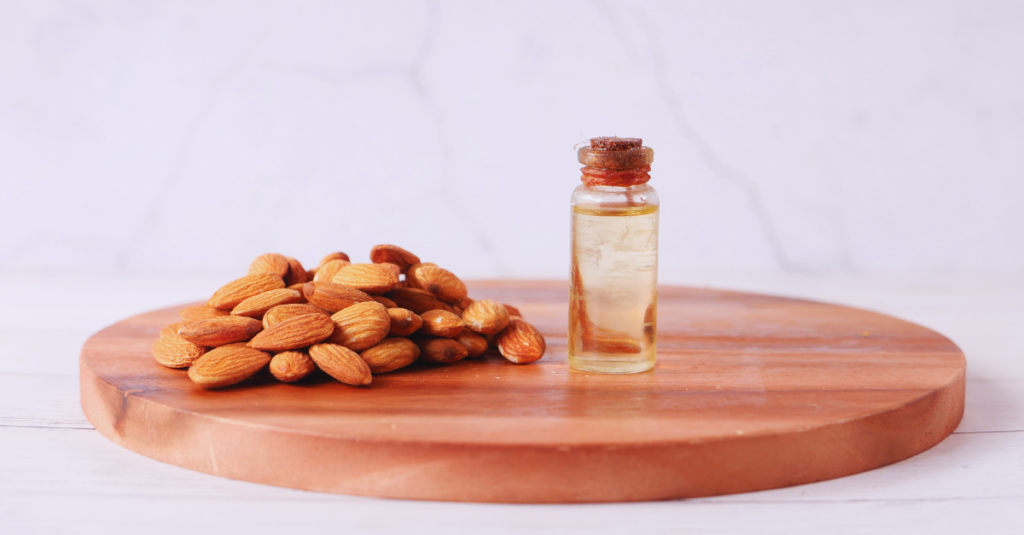What Are the Uses of Almond Hair Oil?
Introduction
In the world of haircare, the quest for healthier, more radiant locks has led us to explore a multitude of products and remedies. Amidst the vast array of options, one age-old elixir has quietly stood the test of time – almond hair oil. Extracted from the humble almond, this natural wonder has been revered for centuries for its remarkable benefits in haircare. From promoting growth to taming frizz and combating dandruff, almond oil has established itself as a versatile and invaluable addition to our haircare routines.
In this exploration of the uses of almond hair oil, we delve into its multifaceted properties and how it can transform your hair, leaving it nourished, resilient, and gleaming with vitality. Join us on this journey as we uncover the secrets of almond hair oil, and discover how it can be the key to unlocking the full potential of your tresses.
The Rich Heritage of Almond Hair Oil

Before we dive into the contemporary uses of almond hair oil, let’s take a moment to appreciate its historical significance. The use of almond oil for hair and skincare dates back thousands of years. Ancient Egyptians revered it as a symbol of prosperity and even buried small bottles of almond oil alongside pharaohs. In ancient India, Ayurvedic practitioners valued almond oil for its nourishing properties, using it extensively in traditional medicine and beauty regimens.
The rich history of almond hair oil signifies its enduring appeal and effectiveness in promoting hair health and beauty. So, what are the modern uses of this time-honored elixir?
Benefits of Almond Hair Oil
- Nourishment for Hair: One of the primary uses of almond hair oil is its exceptional ability to nourish your hair. Almond oil is rich in essential nutrients, including vitamin E, omega-3 fatty acids, and antioxidants. These components work in harmony to hydrate and replenish your hair, leaving it soft, silky, and well-nourished. Regular application of almond oil can help combat the dryness that often leads to brittle and dull hair.
- Hair Growth and Thickness: Many individuals seek ways to boost hair growth and add volume to their locks. Almond hair oil can play a significant role in this pursuit. It contains biotin, a B-vitamin known for promoting hair growth. Additionally, almond oil strengthens hair follicles, reducing the risk of breakage and hair loss. Massaging almond oil into your scalp stimulates blood circulation, which, in turn, encourages hair growth.
- Dandruff Prevention: Dandruff can be a persistent and embarrassing problem. Almond hair oil offers a natural solution to this common issue. Its anti-fungal properties help combat the overgrowth of yeast on the scalp, a leading cause of dandruff. By using almond oil regularly, you can effectively reduce flakiness and itching associated with dandruff, leaving your scalp healthier and more comfortable.
- Hair Shine and Smoothness: Who doesn’t want glossy, radiant hair? Almond hair oil can be your secret weapon for achieving that enviable shine. It seals in moisture, preventing the loss of natural oils that keep your hair looking glossy and healthy. Moreover, almond oil’s smoothing properties help tame frizz and reduce split ends, leaving your hair feeling smoother and more manageable.
How to Use Almond Hair Oil
Now that we’ve explored the remarkable benefits of almond hair oil, let’s discuss how to incorporate it into your haircare routine effectively.
Pre-application Considerations
Before diving into almond oil application, consider the following:
- Choosing the Right Almond Oil: There are two primary types of almond oil: sweet almond oil and bitter almond oil. Sweet almond oil is suitable for haircare and skincare, while bitter almond oil is primarily used in aromatherapy and should not be applied directly to the skin or hair.
- Allergies and Sensitivities: As with any new hair product, it’s essential to perform a patch test to ensure you don’t have any allergic reactions or sensitivities to almond oil. Apply a small amount to your wrist or behind your ear and wait 24 hours to check for any adverse reactions.
Application Methods

- Direct Scalp Application: For a straightforward and effective application, warm a small amount of almond oil in your hands and gently massage it into your scalp. Ensure that your entire scalp is covered. Leave it on for at least 30 minutes, or if possible, overnight for maximum benefits. Then, wash and condition your hair as usual.
- Hair Mask Recipes: Almond oil can be used as the base for DIY hair masks. Combine it with other beneficial ingredients such as honey, yogurt, or aloe vera gel to create a custom hair mask tailored to your specific needs. These masks can provide deep nourishment and address various hair concerns.
- Incorporating Almond Oil into Your Haircare Routine: Almond oil can also be mixed with your regular shampoo or conditioner. Simply add a few drops of almond oil to your preferred product before use. This method allows you to enjoy the benefits of almond oil with every wash.
Tips for Effective Application
- Warm the Oil: Warming almond oil slightly before applying it can enhance its effectiveness. You can do this by placing the oil container in a bowl of warm water for a few minutes.
- Use Gentle Massage: When massaging almond oil into your scalp, use gentle circular motions to improve blood circulation. This not only helps with absorption but also promotes hair growth.
- Be Consistent: To see the best results, use almond oil regularly as part of your haircare routine. Consistency is key when it comes to reaping the full benefits.
Who Can Benefit from Almond Hair Oil?

Almond hair oil is incredibly versatile and can benefit individuals with various hair types and concerns.
Different Hair Types:
- Dry Hair: Almond oil’s moisturizing properties make it an excellent choice for individuals with dry, brittle hair. It helps restore lost moisture and leaves hair feeling soft and hydrated.
- Oily Hair: Surprisingly, almond oil can also be beneficial for those with oily hair. By applying almond oil to the scalp, it helps regulate the production of sebum, preventing excessive oiliness without drying out the hair.
- Curly Hair: Curly hair often requires extra moisture and care to maintain its texture and prevent frizz. Almond oil’s hydrating properties can help keep curls defined and manageable.
Addressing Specific Hair Concerns:
- Hair Loss: If you’re dealing with hair loss or thinning, almond hair oil’s ability to strengthen hair follicles and promote growth makes it a valuable addition to your regimen.
- Damaged Hair: Hair that has been subjected to frequent styling, heat, or chemical treatments can benefit from the restorative properties of almond oil. It helps repair damaged hair and provides protection against future harm.
- Scalp Issues: Almond oil’s anti-inflammatory and anti-fungal properties can soothe an irritated or itchy scalp, making it an ideal solution for those dealing with scalp conditions.
Almond Hair Oil and Natural Haircare
In recent years, there has been a growing emphasis on natural and organic haircare products. Almond oil aligns perfectly with this trend. Many natural and organic haircare brands incorporate almond oil into their formulations due to its well-established benefits. Choosing products with almond oil as a key ingredient can provide you with a natural and sustainable way to care for your hair.
Moreover, the production of almond oil can be environmentally friendly when sourced responsibly. Sustainable farming practices and ethical harvesting methods contribute to the overall appeal of almond oil as a natural haircare option.
Potential Side Effects and Allergies
While almond hair oil offers numerous benefits, it’s essential to be aware of potential side effects and allergies.
Common Side Effects:
- Greasiness: Using too much almond oil or not washing it out properly can leave your hair feeling greasy. It’s crucial to find the right balance to avoid this issue.
Allergic Reactions:
- Allergies to Nuts: Individuals with nut allergies should exercise caution when using almond oil. Even though almond oil is typically considered safe for external use, it’s wise to consult with a healthcare professional if you have nut allergies.
- Skin Sensitivity: Some people may experience skin sensitivity or irritation when using almond oil. This is why conducting a patch test is essential before applying it to your scalp and hair.
Conclusion
In the quest for healthier, more vibrant hair, almond hair oil emerges as a versatile and time-tested ally. From nourishing dry hair to promoting growth and preventing dandruff, its uses are as varied as its historical significance. By incorporating almond oil into your haircare routine and following the recommended application methods, you can unlock the full potential of this natural elixir. Whether you have straight or curly hair, suffer from hair loss or dandruff, almond hair oil offers a holistic solution that aligns with the growing preference for natural and sustainable haircare products. So, embrace the magic of almond hair oil and unveil the true beauty of your locks, one application at a time.

My name is Rohit Vagh and I’m a content writer specializing in fashion and lifestyle. I have three years of experience in this field and have written various articles. My writing style is creative and engaging, and I strive to create content that resonates with my readers. I have a deep passion for fashion and am constantly researching the latest trends and styles to make sure my readers are up to date. I’m excited to continue my career in blogging, and I’m always looking for new opportunities in the fashion and lifestyle space.





